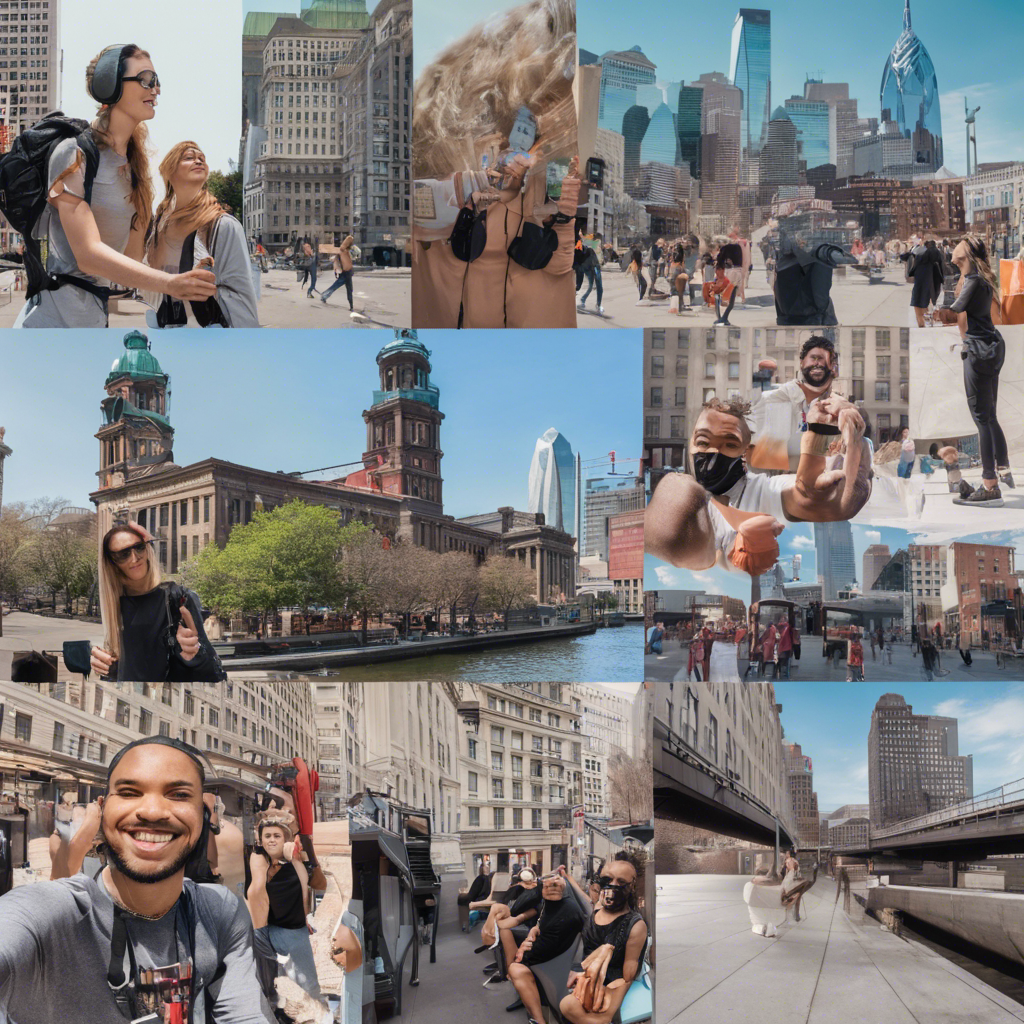“Exploitative Trend: TikTokkers and YouTubers Face Backlash for ‘Tranq Tourism’ in Philadelphia”

Social media influencers visiting a low-income community in Philadelphia to film videos of residents high on a powerful sedative called “tranq” are facing criticism for exploiting vulnerable individuals.
The rising trend of “tranq tourism” has sparked outrage as TikTokkers and YouTubers flock to a poor Philadelphia neighborhood to film videos of residents under the influence of a potent sedative known as “tranq.” These videos often mock the individuals experiencing the drug’s effects, labeling them as “zombies” or “junkies.” Critics argue that this exploitative behavior dehumanizes those struggling with addiction and fails to address the underlying issues. As the controversy deepens, questions arise about the ethics of content creation on social media platforms and the responsibility of influencers to contribute positively to the communities they visit.
The Dangerous Effects of Tranq
Tranq, or xylazine, is a horse tranquilizer that officials warn may be present in the cocaine supply or laced with fentanyl, a highly potent synthetic opioid. The Centers for Disease Control and Prevention (CDC) highlight the dangerous effects of tranq, including difficulty breathing, dangerously low blood pressure, slowed heart rate, and the risk of flesh-eating wounds. Despite its severe health risks, tranq is alarmingly inexpensive, with a kilogram of the powder available online from China for as little as $6, according to the Drug Enforcement Administration (DEA).
Exploitative Videos and Dehumanization
The videos capturing the drug use in the Kensington neighborhood of Philadelphia have drawn widespread criticism for their exploitative nature. Some content creators film individuals lying on the ground or zoom in on users experiencing the effects of tranq. The derogatory language used in these videos, such as “zombies” or “junkies,” further dehumanizes the people featured. Clinical psychologist Dr. Geri-Lynn Utter emphasizes that these videos not only fail to address the individuals’ need for help but also perpetuate their dehumanization. The consent and participation of those under the influence of tranq are called into question, as their vulnerable state may impair their ability to make informed decisions.
The Proliferation of Tranq Tourism
Despite the backlash, the videos documenting tranq use in Kensington continue to proliferate. Sarah Laurel, founder of Savage Sisters, a nonprofit organization supporting those affected by substance abuse, estimates that there are now over 150 channels dedicated to Kensington and its drug-related activities. These videos rarely blur the faces of the individuals involved, and the hashtag #Kenzingtonzombies has garnered millions of views. Some content creators claim that their intention is to raise awareness or help those affected by the drug problem. However, critics argue that these videos rarely provide a means to donate funds or assist those in need, raising doubts about the true intentions behind such content.
Profits and Ethical Dilemmas
The motivation behind these videos often includes financial gain. Content creators on platforms like TikTok and YouTube rely on the reach and engagement of their videos to generate income. In 2022, the typical compensation for YouTube content creators in the US was approximately $4,600 per month. TikTok operates on a similar model, with users needing at least 10,000 followers to start earning money. Some content creators openly admit that they create these videos primarily for monetary gain. However, critics argue that profiting from the exploitation of vulnerable individuals raises ethical concerns and highlights the need for greater accountability.
Reimagining Tranq Tourism
While the controversy surrounding tranq tourism persists, there are voices advocating for a more responsible approach. Content creator “Jeff” suggests that the money earned from these videos could be reinvested in the community. He personally spends around $1,000 per month on wound care and supplies for the individuals he films. Sarah Laurel echoes this sentiment, emphasizing the importance of bringing resources and actively engaging with the community. She encourages content creators to go beyond merely recording and to address the needs of the community they are documenting.
Conclusion:
The phenomenon of “tranq tourism” has ignited a heated debate about the ethics of content creation on social media platforms. While some argue that these videos raise awareness about the drug problem in low-income communities, critics contend that they exploit vulnerable individuals and perpetuate their dehumanization. As the controversy unfolds, influencers face increasing scrutiny over their responsibility to contribute positively to the communities they visit. Reimagining tranq tourism as a means of providing support and resources to those in need may offer a more ethical and constructive approach to addressing the complex issues surrounding addiction and poverty.

